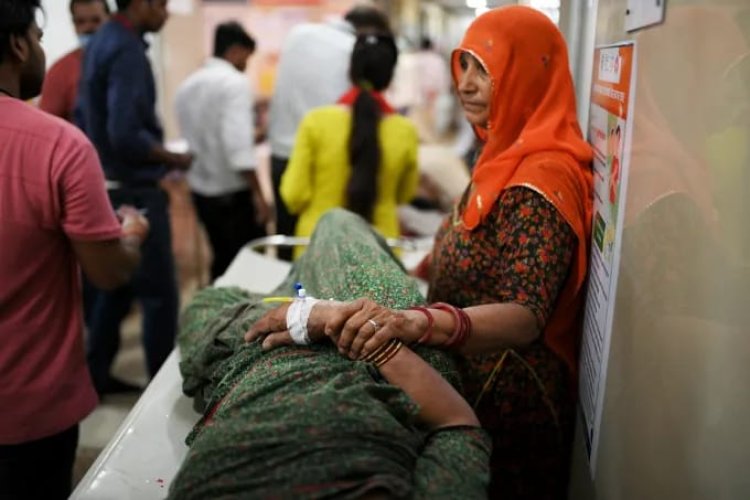Heat wave kills at least 33 poll workers as India's election concludes in scorching weather

Navdeep Rinwa, the state's top election commissioner, informed reporters during a press conference that the workers died in Uttar Pradesh, in the north.
Their families will receive $18,000 in compensation, he added. Voters and poll workers in India's north have suffered an extended period of extremely high temperatures as the country held a seven-phase election that began on April 19. The final phase occurred on June 1.
Local health and government officials report that at least 61 individuals have died as a result of heat strokes, heat exhaustion, dehydration, and other heat-related ailments since May 24. Authorities reported that at least 43 of those were election workers.
Election duty is mandatory in India for public sector employees. They are assigned by the electoral commission before voting begins.
With over 1.4 billion people, around 969 million were eligible to vote, more than the populations of North America and the European Union combined.
According to election laws, voters should not be more than 2 kilometers (1.24 miles) away from a voting site.
To conduct such a large election, India relies on a network of around 15 million polling officials and security personnel, with some of these election workers traveling by road, boat, camel, rail, and helicopter to reach residents throughout the enormous country.
According to the Indian Meteorological Department, maximum temperatures in northwest and central India have risen above 42 degrees Celsius (107.6 Fahrenheit), with several locations exceeding 50 degrees (122 Fahrenheit).
Last week, the capital region of Delhi experienced its highest-ever temperature of 49.9 degrees Celsius (121.8 degrees Fahrenheit), prompting authorities to implement water rationing.
Before voting began, the Election Commission of India announced many precautions to account for high temperatures during voting, such as providing water at polling stations and erecting tents for shade.
"Heat wave conditions over Northwest, Central, and East India are likely to continue with reduced intensity for the next three days," the Indian Meteorological Department warned on Sunday.
According to the Intergovernmental Panel on Climate Change, India is one of the countries anticipated to be most severely impacted by the climate catastrophe, jeopardizing its development and potentially reversing advances in poverty reduction, health, and economic growth.
Heat waves are common in the country throughout the summer months of May and June, but they have been arriving earlier and lasting longer in recent years.
Experts predict that the climate issue will result in more frequent and longer heat waves in the future, putting India's adaptability to the test. All votes will be counted on a single day, Tuesday, June 4, with the results due later that day.

 Boakyewaa Lawrencia
Boakyewaa Lawrencia 



































